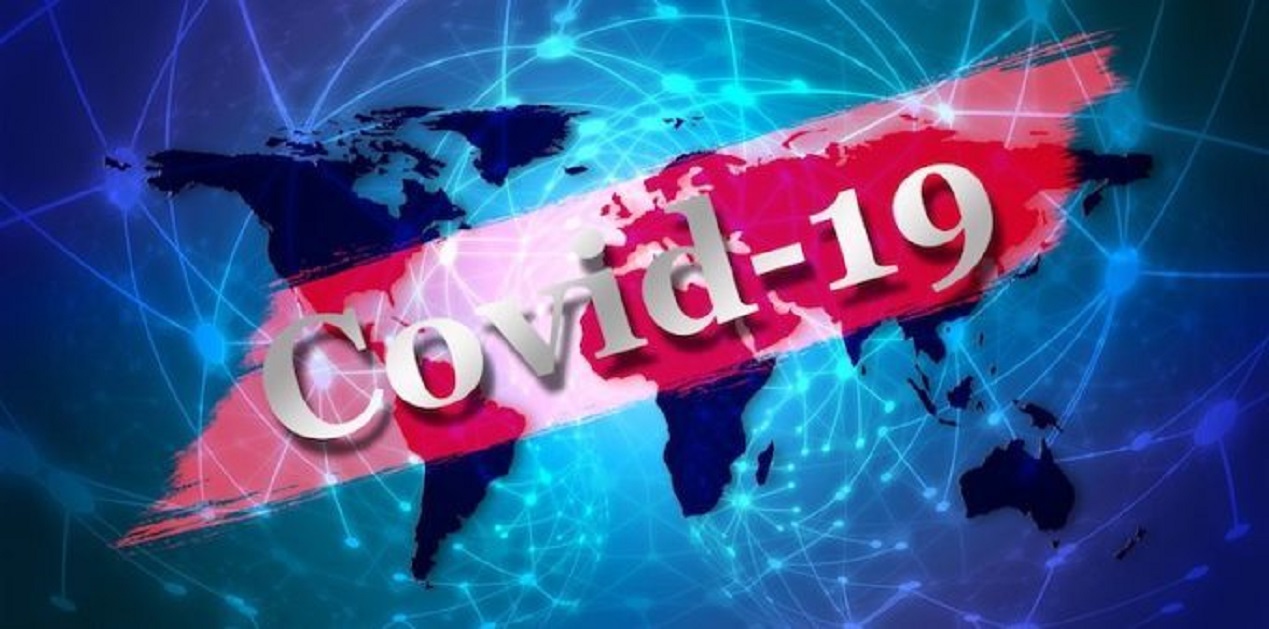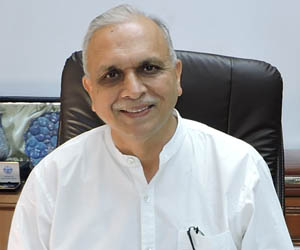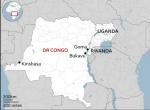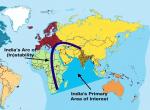Covid-19 is the first full-blown crisis of a hyper-connected world. It arose as the local outbreak in China at Wuhan city, and within a few weeks, it had spread all across the world. More than a million Corona positive cases have been noticed and more than 100,000 people have died. With no cure or vaccine in sight, this is just the beginning of the pandemic. More damage and destruction should be expected in the next few months.
Setback to globalisation
Apart from thousands of casualties each day, the most visible impact of the coronavirus crisis is the comprehensive political, economic and social disruption that it has caused around the world. The virus spread to all parts of the world in no time. Passengers stopped flying the airlines, global tourism came to a halt, and associated industries like entertainment were frozen within weeks. The countries turned inwards. They closed their borders and put massive restrictions on movement of their populations. Coronavirus has caused a massive setback to globalisation.
The global impact of the crisis of the virus has been staggering in scale. According to the International Monetary Fund (IMF), the global economy has already tipped into recession. The International Labour Organisation (ILO) estimates that nearly 1.25 billion workers, almost 38 per cent of the global workforce, face a high risk of workforce displacement because they are employed in transport, entertainment, sports, manufacturing, retail, construction, the sectors which have come to a grinding halt. Stock markets have tanked across the world. The oil industry, which is the backbone of the global economy, is experiencing its most grave crisis in the last 100 years.
The contraction of the global economy, the disruption of the various economic activities will destroy jobs at an unprecedented scale. In comparison to the earlier crisis like the 2008-2009 financial crisis, 9/11 terrorist attacks, the Asian financial crisis of 1997, the demise of the Soviet Union in 1991, the coronavirus crisis is much bigger and deeper. It is too early to be sure about its precise impact, but certain trends are already visible.
The helpless West
The US and the leading countries of the European countries have been struck hard by the virus. Majority of the global casualties have been in the US and Europe. They were inadequately prepared to deal with its onslaught. In comparison, China suffered much fewer infections and casualties than the US. Many of them turned to China for help during the time of the crisis. China has taken advantage of the crisis to project itself as the saviour of the world at a time of need. Many would disagree but the Chinese propaganda machinery is busy projecting China’s benign image.
The deepening of US-China rivalry
Since the end of the Cold War, a multipolar world had been shaping up. During President Trump's tenure, the US-China rivalry, manifest in the massive technology and trade war, has been sharpening. In the post coronavirus world, mutual tensions may intensify further. The US has already blamed China for the crisis calling Covid-19 as “China virus”. China has strongly resisted these accusations. The US effort to have a discussion on the virus at the UN Security Council has been thwarted by China. President Trump’s prospects in the forthcoming presidential elections have become uncertain. Building on the belt and road initiative and now the coronavirus crisis, China can be expected to enhance its influence in the world further. Whether that will happen or not is a question mark.
Crisis of Multilateralism
The coronavirus crisis has exposed the weaknesses of multilateralism once again. International cooperation has been the weakest when the crisis has been raging. Most countries are on their own. The UN Security Council could not even discuss the crisis. The World Health Organisation has been mired into controversies, thanks to the attacks by the US on its director-general, considered to be soft towards China. G-20 countries did not come out with any worthwhile, unified initiative. The WTO has been in deep crisis for the last many years. The IMF’s assessment that the global economy has gone into recession has created huge panic. The panic has been further deepened by the International Labour Organisation (ILO) estimates that hundreds of millions of jobs are at risk.
The paralysis of multilateralism was not entirely unexpected. Even though everybody pays lip service to international cooperation, most major countries of the world have followed a me-first policy. One would expect the rise of nationalism and even hyper-nationalism in the post-Corona world. Regional organisations have also been found wanting. The Italian prime minister has warned that the inaction of the EU during the time of crisis could lead to the end of the European project. The EU’s Euro 500 billion package has come too late and too little.
The world needs a global plan to save jobs, shore up the beleaguered sectors of the economy and addresses the livelihood issues of the poorest and most vulnerable sections. There is nothing like that in the offing. Not even a discussion. Many countries have approached the IMF for emergency lending. The crisis will break the economies of many countries. This could lead to widespread unrest and instability.
Capitalism under scrutiny
Once again capitalist model, based on unbridled consumerism, will come under scrutiny. Rampant globalisation had led to sharp inequalities among nations and within countries. Wealth generation and not wealth distribution has been the focus of globalisation. Rampant consumerism was not sustainable as it exacerbated climate change and hurt the environment deeply. Frequent natural disasters have ravaged country after country but there has been little thinking on practical measures for sustainable growth. The wanton destruction of biodiversity has put mankind’s survival at risk. The coronavirus, itself a product of close proximity and interaction between humans and the animal world, has laid bare the fragility of the consumerist model of development. Nationalism will also surge in post covid-19 world. Countries are expected to reimpose border controls which would have an impact on free air travel and trade.
Security redefined
The US has suffered more casualties due to the coronavirus than its losses in the Afghan war, Iraq War, 9/11, the Gulf War. It spends hundreds of billions of dollars on defence every year but its health system is broken. The virus has shown that health security is as important or even more important than traditional hardcore military security. Henceforth, the countries will be compelled to treat security as a wider concept in which non-traditional security issues, which can wreak far more damage, will be given more importance. The coronavirus has brought back the discussion on bioterrorism.
Global supply chains
In the hyper-connected world, manufacturing depended upon long supply chains. Most of these passed through China. The long supply chains which pass through China would almost certainly be recalibrated. The emphasis will be on shorter supply chains. Countries will look for self-reliance in many areas. There would be greater attention on neglected sectors like health, education, and environment, small and medium industry et cetera. The workplace will be rejigged. Where possible remote- working will be encouraged. New practices will emerge on the shop floor. New delivery mechanisms will be invented. Education and health delivery systems will be revolutionised. Travel and transport will also undergo a sea change. Social distancing, though it sounds good, has its psychological impact on humans who are basically social animals. Such massive behavioural change will not happen easily or without repercussions.
India
The pandemic is still unfolding in India. The worst is probably yet to come as the lockdown is lifted. However, certain trends in Indian thinking for the post-Corona world are already visible.
First, there is a growing realisation that India should lessen its dependence on China for critical raw materials and rebuild its economy based on self-reliance and swadeshi, without neglecting international cooperation. India must re-engineer and recover its manufacturing sector which it had lost to China in the last few decades.
Second, India, with its vast population, has a huge untapped potential in health, education, agriculture, manufacturing, clean technologies, environmental protection. This must be used to rebuild India. India’s growing digital infrastructure can be pressed more effectively into governance. India must spend more on research and development. It has the chance to build supply chains within the country and in the neighbourhood. Indian growth model should be based on Indian realities and the principles of sustainable development which are enshrined in its cultural thinking.
Third, the crisis has exposed deficiencies in India’s social security systems which must be addressed urgently. The vulnerable sections of the society, lying at the base of the prosperity pyramid, are going to face the burden of the crisis most. India now has an opportunity to build its social security system around assured basic income, healthcare, education et cetera.
Fourth, in contrast to many other countries, India has genuinely advocated and practised international cooperation as the crisis unfolds. Prime Minister Modi’s initiative to reactivate the moribund SAARC in the middle of the crisis was unexpected. Prime Minister Modi also had a series of telephone conversations with the world leaders who appreciated India’s endeavours to fight the crisis and sought India’s cooperation. As a result, India’s pharmaceutical sector has been primed up to manufacture and provide the much in demand hydro-chloroquine (HCQ) tablets for the world, including the United States. Many countries are looking towards India for cooperation in areas which matter. This is the time for India to step up meaningful interactions and cooperation with other countries and thereby help create a new world order. Geopolitical considerations and power politics will remain important, but India should help build a new world order based on the themes of Vasudhiava Kutumbakam i.e. the world is a family, Karuna i.e. compassion, conflict avoidance, respect for nature and environmental consciousness. In the 75th year of the UN’s existence, these themes should be projected and discussed.
(The paper is the author’s individual scholastic articulation. The author certifies that the article/paper is original in content, unpublished and it has not been submitted for publication/web upload elsewhere, and that the facts and figures quoted are duly referenced, as needed, and are believed to be correct). (The paper does not necessarily represent the organisational stance... More >>
Image Source: https://contexts.org/files/2020/03/[email protected]











Post new comment